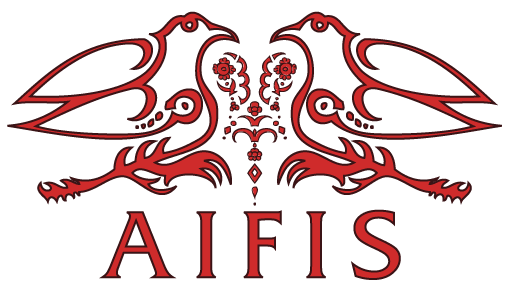Michigan State University is pleased to co-host the inaugural AIFIS-MSU Conference on Indonesian Studies, in collaboration with the American Institute for Indonesian Studies (AIFIS). The virtual event will be held from June 23 - 26, 2021.
The Program Committee welcomes proposals for panels, roundtables, and individual paper presentations on history, culture, anthropology, sociology, language, and arts related to Indonesia, and research advancing understandings of the ways that historical, sociocultural, economic, and political contexts shape contemporary and historical issues in Indonesia.
Submission Deadline: 31 March 2021 (11:59 pm EDT)
Types of Proposal Submission
Paper Presentation - Regular Session (Individual Submission)
Individuals may submit abstracts for paper presentations. The Conference organizers will form panels based on accepted abstracts submitted. The panel sessions are 90 minutes long with a maximum of 4 live paper presentations (15 minute each), followed by a discussion. A session chair will moderate and monitor time. Presenters are encouraged to volunteer as session chairs for the panel in which they are presenting. Paper presentation submission includes an abstract of up to 300 words. Each person may only submit one individual paper abstract.
Paper Presentation - Flip-Session (Individual Submission)
The organizers will similarly form panels for flip-sessions based on accepted proposals submitted by individuals. Presenters whose proposals have been accepted into a flip-session panel must submit a pre-recorded presentation prior to the conference (as a link to the recording on a cloud storage or a personal online media channel). The length of the presentation should be between 15 to 20 minutes. Flip-sessions during the conference dates are 30 minutes long consisting of a discussion among the audience and the presenters, with the assumption that session participants have watched the pre-recorded presentations prior to attending the session. All presenters in a flip-session panel are highly encouraged to watch pre-recorded presentations of their fellow panelists prior to the session. The organizers may assign session hosts to moderate the discussion, but welcome suggestions from presenters of individuals to serve as hosts. Paper presentation submission for flip-sessions includes an abstract of up to 300 words. Each person may only submit one individual paper abstract.
Panel Session (Group Submission)
A group of presenters may propose a panel session of 3 or 4 presentations based on work that share a set of common themes, issues, or research questions. The panel sessions are 90 minutes long. The panel organizers must identify a session chair and a discussant (who must also register for the conference) in the proposal submission. The organizers encourage panel submissions to demonstrate diversity in terms of gender and institution. We especially welcome panels with presenters from different countries. Panel session submission includes a panel abstract of up to 500 words, and individual paper abstracts of up to 300 words.
Refereed Roundtable Session (Group Submission)
Round-table sessions are intended to foster connections and substantive exchanges among a community of researchers and practitioners on a collaborative project, or a particular issue with implications on research and policy. The roundtable sessions are 90 minutes long and feature up to 4 presentations on the roundtable topic, as such the presentations do not have individual separate titles. Roundtable organizers should identify a session chair who will moderate the discussion. The roundtable session submission includes a brief description of the intended discussion for the roundtable of up to 500 words, and a preliminary list of invited participants (including name, affiliation, and contact information, who must also register for the conference).
Click below button to submit your abstract!
For any inquiries, please contact us through:
conference@aifis.org (AIFIS)
asiansc@msu.edu (MSU Asian Studies Center)





